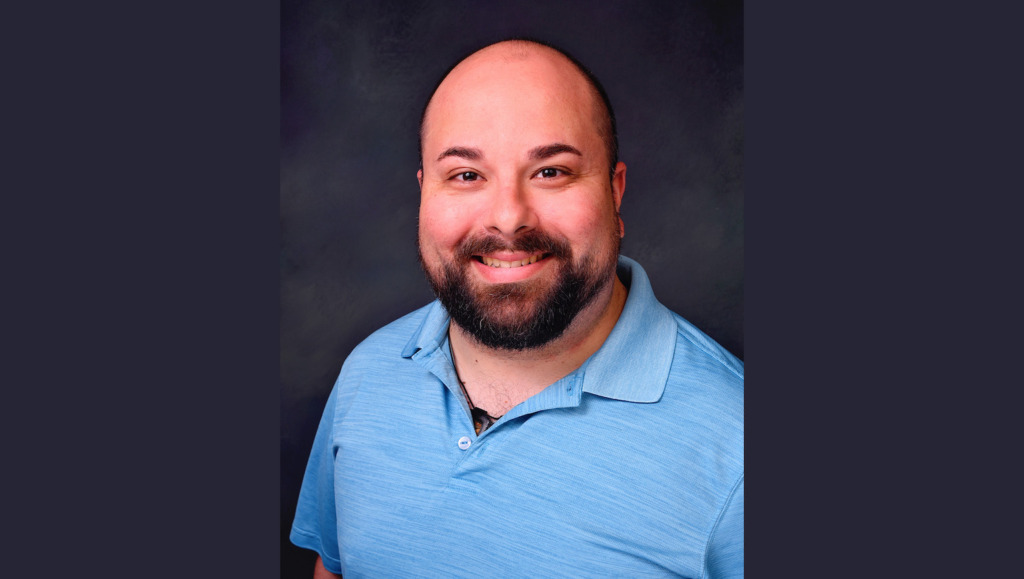Villar makes connections, growth priorities
Forming connections among the different cultures in the Diocese of Richmond, facilitating growth and establishing legacy are Daniel Villar’s main goals as the new director of the diocesan Office of Ethnic Ministries (OEM).
Villar was promoted on Monday, Jan. 10. He had been serving as acting director of the office since September 2021.
Villar, who holds a bachelor’s degree in religious studies and minors in sociology and philosophy from Florida International University-Miami and a master’s degree in systematic theology from St. Leo University in Florida, began his employment with the Diocese of Richmond in 2015. He worked in the Office of Hispanic Ministry, where he was in charge of “everything surrounding formation.”
“When I started in Hispanic Ministry, my main focus was, and still was until Monday (Jan. 10), sacraments, catechesis, adult faith formation and ecclesial movements,” he said.
He began working with OEM when the office was created in 2019, under then-director Comboni Missionary Sister Inma Cuesta.
Villar speaks English, Spanish, French and Italian, and said he has “always had a passion for different cultures and diversity and inclusiveness.”
In his new role, Villar said he wants to “continue the wonderful work begun by Sister Inma,” who left the Diocese of Richmond in September 2020 to serve her community in Rome. That work, he explained, includes “her expertise in being able to work with many different cultures and learning other cultures from both a secular and Catholic context, which is very important.”
In addition to building upon those aspirations put in place by his predecessor, Villar sees “establishing legacy” as an essential part of his role.
“I think legacy is very important for us as Catholics. Discipleship is a legacy, right?” he said. “So that’s something that is very deep in my heart, to really be able to get to the work that Sister started in the office and continue that work, being able to expand it, help it grow, and continue servicing the communities we’ve been servicing since the beginning.”
Villar explained that in the Diocese of Richmond, ethnic communities are an increasing part of the Catholic population.
“Establishing the legacy of this office is very important for me because I [know] that these groups are soon to become the majority of Catholics in our diocese – with the exception of Hispanics because that’s the majority now – but eventually the Filipinos and Vietnamese will also be part of the Catholic majority,” he said.
He added that the immigrant indigenous, like those from southern Mexico and Guatemala, present a unique challenge because that group is currently “severely misrepresented or underrepresented.”
“They don’t consider themselves Hispanics; Spanish is not their language…. It’s a different community, a different structure culturally, different languages, dialects – Mayan dialects, Aztec dialects – so they don’t prescribe to the quintessential Hispanic culture as an umbrella culture,” he said. “There’s large communities of them around the diocese, and that’s a group that I’m trying to connect with. That’s part of what I’m going to do, too,” he said.
In order to accomplish those goals, Villar will first work to make sure everyone is connected.
“We are a diocese of 33,000 square miles, so connection is the most fundamental thing,” he said. “Jesus emphasized unity, especially when he prayed for his disciples, making sure that they were one under the Holy Spirit. That’s one of the roles of the Holy Spirit.”
Villar worked closely with the Filipino community last year to connect those in Virginia Beach, Roanoke and southwest Virginia when they celebrated their 500th anniversary of Christianity in the Philippines, and he plans to do the same for the other ethnic communities in the diocese.
To do that, Villar will collaborate with the OEM advisory committee – a group Villar describes as “very distinguished leaders in their own communities who have created very, very deep connections between those communities and the diocese.”
The group will assist in establishing specific goals, provide information on the current status of their communities and receive ongoing formation – “things to move the office forward,” according to Villar.
“I have a lot of work ahead of me,” he said, “but I look forward to it with the help of the Holy Spirit and the guidance I receive from God through Jesus and Mary.”

